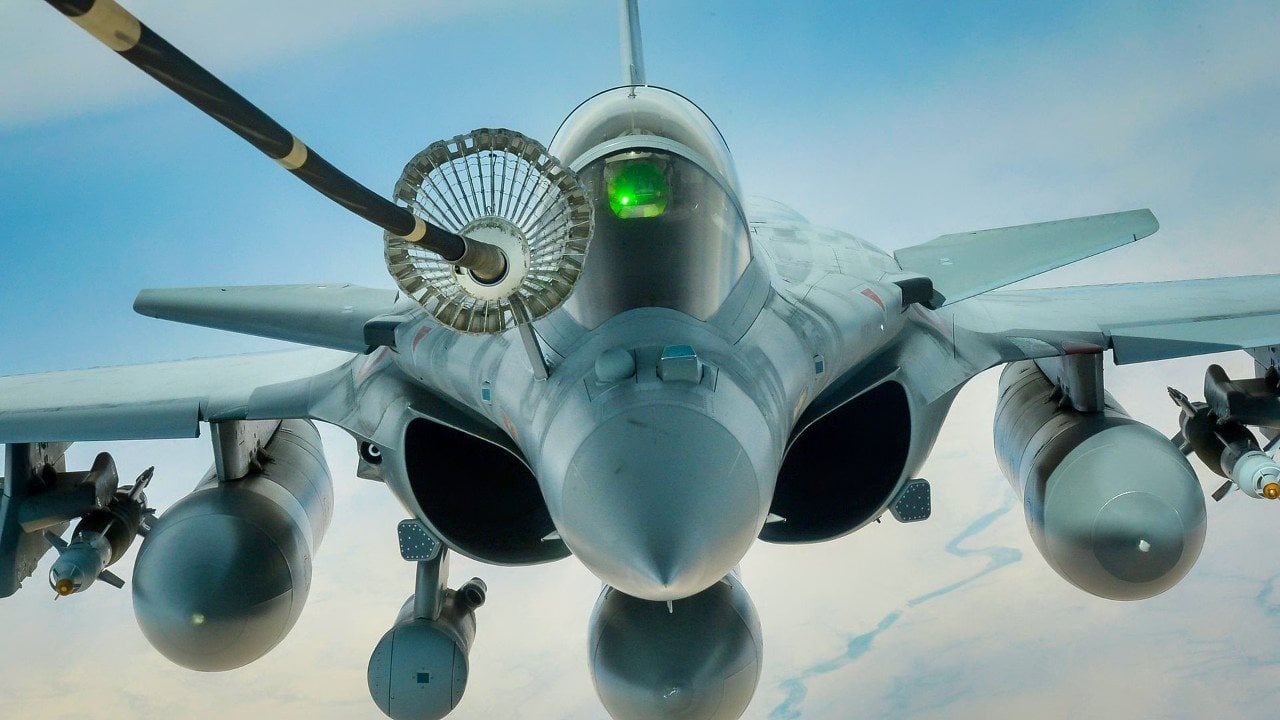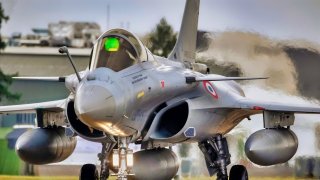New Dassault Rafale Fighter Jets Could Go to Russia's 'Little Brother'
Despite being Russia's "little brother" in the Balkans, Serbia is inching closer to securing a deal to purchase more than a dozen Dassault Rafale fighter jets from France.
Summary: Serbia, traditionally Russia's "little brother" in the Balkans, is nearing a deal with France for over a dozen Dassault Rafale fighter jets, signaling a significant pivot in its military procurement strategy. Serbian President Aleksandar Vucic's announcement of the impending deal, potentially involving 12 jets for approximately 3 billion euros, underscores Serbia's nuanced position between its Slavic, Eastern Orthodox partnership with Russia and a gradual alignment with Western military standards. Despite its EU candidacy and military neutrality, Serbia's legacy of Soviet-era military hardware is evolving, with recent acquisitions from Western and Chinese suppliers indicating a broader defense diversification.
New Dassault Rafale Fighter Jets Could Be Sold Soon
Serbia remains Russia's closest ally in the Balkans – an alliance embedded in the two countries’ Slavic identity and Eastern Orthodox faith. Earlier this year, Serbia even cracked down on anti-war Russians living in the country.
Yet despite being Russia's "little brother" in the Balkans, Serbia is inching closer to securing a deal to purchase more than a dozen Dassault Rafale fighter jets from France.
"It seems to me that we also reached some concrete agreements when it comes to a purchase of Rafales, and I expect the contracts to be signed within two months in the presence of the French president, which is tremendously important for our country on many levels," Serbian President Aleksandar Vucic said April 9 during a visit to Paris.
The exact number of jets Belgrade may acquire has not been made public, nor has the price. However, Vucic said in 2023 that Serbia sought to acquire 12 Rafale fighters for around 3 billion euros ($3.26 billion). This would include 10 single-seat and two twin-seat fighters, while the weapons package could also include MICA and beyond-visual-range air-to-air missiles, along with a flight simulator for the aircraft and a multi-year integrated logistical support package.
As previously reported by The National Interest, the Dassault Rafale has been a cornerstone of French military aviation since 2001. It is an epitome of versatility and advanced technology in the realm of multirole fighter jets. With a fleet of 234 in France and additional units on order, the Rafale's global footprint has also expanded thanks to export orders from nations like Egypt, India, and Qatar.
A Move Away From Russian Hardware
Serbia remains a candidate to join the European Union. It retains one of the largest militaries in the Balkans, and it still relies heavily on Soviet-designed aircraft, notably the Mikoyan MiG-29 twin-engine fighter and the Mil Mi-35 attack helicopter.
Belgrade also operates Russian tanks and missile launchers, but it has also adopted Chinese anti-aircraft systems and combat drones.
Vucic has sought to expand cooperation with Airbus and Thales. Serbia has purchased the Airbus-made H125M helicopter, as well as C-295 transport aircraft, for its military and police.
Serbia remains militarily neutral. It retains its historic ties with Russia, but it also joined NATO's Partnership for Peace program, which is tailored for those nations that do not aspire to join the transatlantic alliance. Vuvic has made clear that his country will seek other weapons suppliers after the introduction of Western sanctions against Russia for its unprovoked invasion of Ukraine in February 2022.

The Serbian military has been increasingly modeled after NATO standards, and its ground forces have taken part in military exercises with alliance members, including the United States.
However, critics of the Western arming of Serbia warn that the sale of sophisticated French jets could encourage Vucic to intervene militarily in neighboring Kosovo. The former Serbian province declared independence in 2008, but Serbia does not recognize it. The populist Serb leader has made several veiled threats in recent months, the Associated Press has reported.
Author Experience and Expertise: Peter Suciu
Peter Suciu is a Michigan-based writer. He has contributed to more than four dozen magazines, newspapers, and websites with over 3,200 published pieces over a twenty-year career in journalism. He regularly writes about military hardware, firearms history, cybersecurity, politics, and international affairs. Peter is also a Contributing Writer for Forbes and Clearance Jobs. You can follow him on Twitter: @PeterSuciu. You can email the author: [email protected].
Image Credit: Shutterstock.


